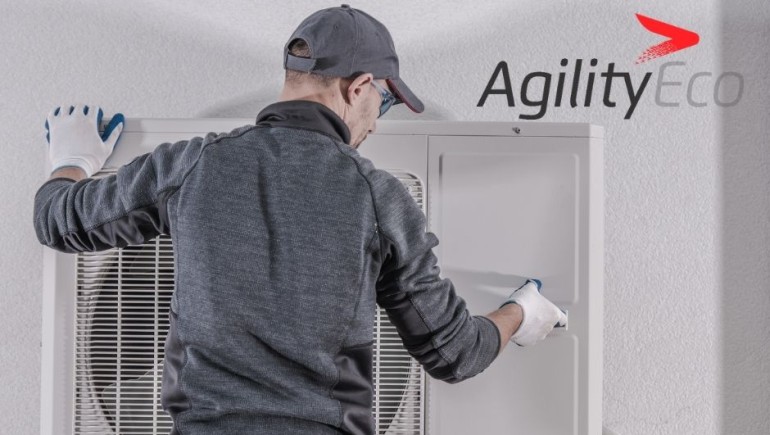Briefing for local authorities on new grant funding opportunities
The Government has today opened two funding programmes to bids from local authorities in England.
These are the Home Upgrade Grant (HUG) Phase 2, with £700 million available, and the Social Housing Decarbonisation Fund (SHDF) Wave 2.1, worth £800 million.
Together they form part of the Government’s ‘Help to Heat’ package.
We thought it would be helpful to summarise some of the key points about the funding below, as well as linking to the full guidance.
AgilityEco is supporting a number of local authorities to access these funds, and if you would like to start a discussion about what AgilityEco can do to help your council, please get in touch at enquiries@agilityeco.co.uk and we can arrange an informal chat.
Home Upgrade Grant (HUG)
- Focus: HUG remains focused on multi-measure retrofit in off-gas private homes – the funding is likely to support more than 30,000 homes
- Property eligibility: Properties must still have an EPC rating of D-G, but the cap from HUG1 on the proportion of D-rated properties that can be included has been removed. Private rented properties are eligible but landlords may not own more than 4 properties.
- Household eligibility: can be evidenced via 3 routes: (1) an annual income of £31k or less, (2) households in fuel poverty or (3 - new) the home is located within the bottom 30% of income deciles are measured by the Indices of Multiple Deprivation (IMD). The latter offers some really interesting opportunities to ‘pre-qualify’ households
- Rural focus: 60% of the funding has been earmarked for rural local authority areas, and there are strict limits on the inclusion of social housing and park homes
- Budget: Rather than have maximum limits on spend based on EPC ratings, there are now limits per measure in different property archetypes, which can lead to a spend of between £3k and £38k. The average spend will be £18k. Up to 15% of the total budget can be used for admin.
- Measure mix: Eligible measures are now graded A, B or C. The majority of measures must be A graded, which means a focus on insulation and low carbon heating. And solar and battery will finally be an option once batteries are recognised in RdSAP!
- Payment structure: Funding will be now provided through a Challenge Fund process, which requires delivery of initial volumes with a limited mobilisation payment before additional funding will be released
- Scoring: Past performance on the delivery of LAD, HUG and SHDF schemes will be considered (and AgilityEco has an excellent track record here)
- Delivery: projects must be completed by March 2025 – the move to offer two years-worth of funding is very welcome and will help to develop referral routes and supply chains
- Closing dates: there are two dates – an early deadline of the 18th November and a second one on 27th January. If you apply by the first date you can start delivery early (February/March next year) and if you are unsuccessful you’ll have a chance to apply again by the second closing date.
AgilityEco can offer support with the development of HUG bids at zero cost – drop us a line to find out more. You can access additional information about HUG from the BEIS-backed Home Upgrade Hub
Social Housing Decarbonisation Fund (SHDF)
This guidance has been available since July but in case you haven’t seen it:
- Focus: supporting ‘fabric first’ retrofit in social properties, though private ‘in fill’ properties can also be assisted
- Property Eligibility: At least 90% of properties must be D-rated or below, with a 2 SAP band increase generally expected for E-G properties. A minimum of 100 properties are required for a bid
- Budget: Grants of £5k-£16k per property are available depending on its existing EPC band and wall type. The landlord must provide at least 50% match funding on top of this, and a further 15% of the total budget can be used for admin
- Measure Mix: All energy efficiency and heating measures compatible with SAP are eligible, with the exception of fossil fuel heating
- Tenant Support: Bids must take the needs of tenants into account and set out how the retrofit process will benefit them. NB AgilityEco can provide energy advice support services to tenants – do ask us for more details
- Quality: PAS2030/2035 must be adhered to – do speak to us if you would like any guidance around the PAS2035 retrofit process
- Payment Structure: Payments will generally be made in arrears once evidence of delivery is provided, with at least 40% of the budget needing to be spent in FY23/34 – otherwise it will be lost. Requests for upfront payments to facilitate start up will be considered on a case by case basis
- Scoring: bids will be scored based on strategic fit with the aims of SHDF, value for money and (very importantly) assurance of delivery. Previous rounds of SHDF, LAD and HUG have been plagued by late or non-delivery. BEIS seem determined to avoid this risk with this new round
- Delivery: projects must be completed by September 2025 (with the grant-funded element complete by March 2025). As with HUG, this additional delivery window is important and will make it much easier to deliver effective, compliant projects
- Closing date: is the 18th November, with announcements made by February/March 2023
You can access additional information about SHDF from the BEIS-backed Social Housing Retrofit Accelerator
If you would like any further information, please contact us.
